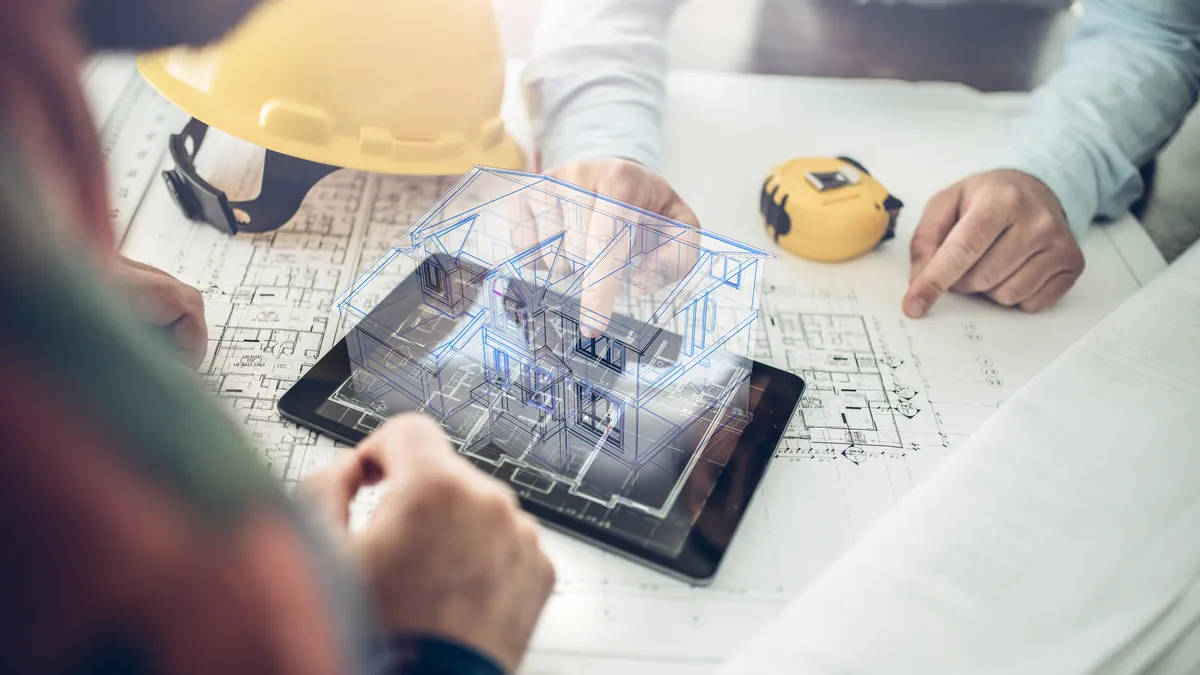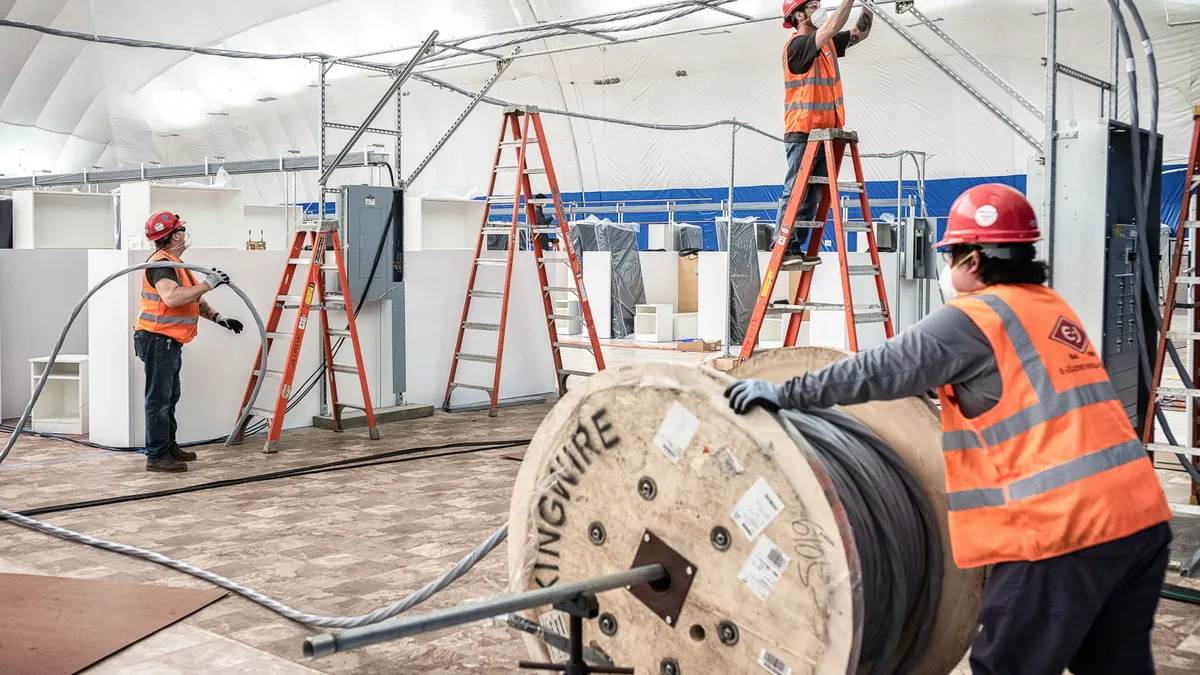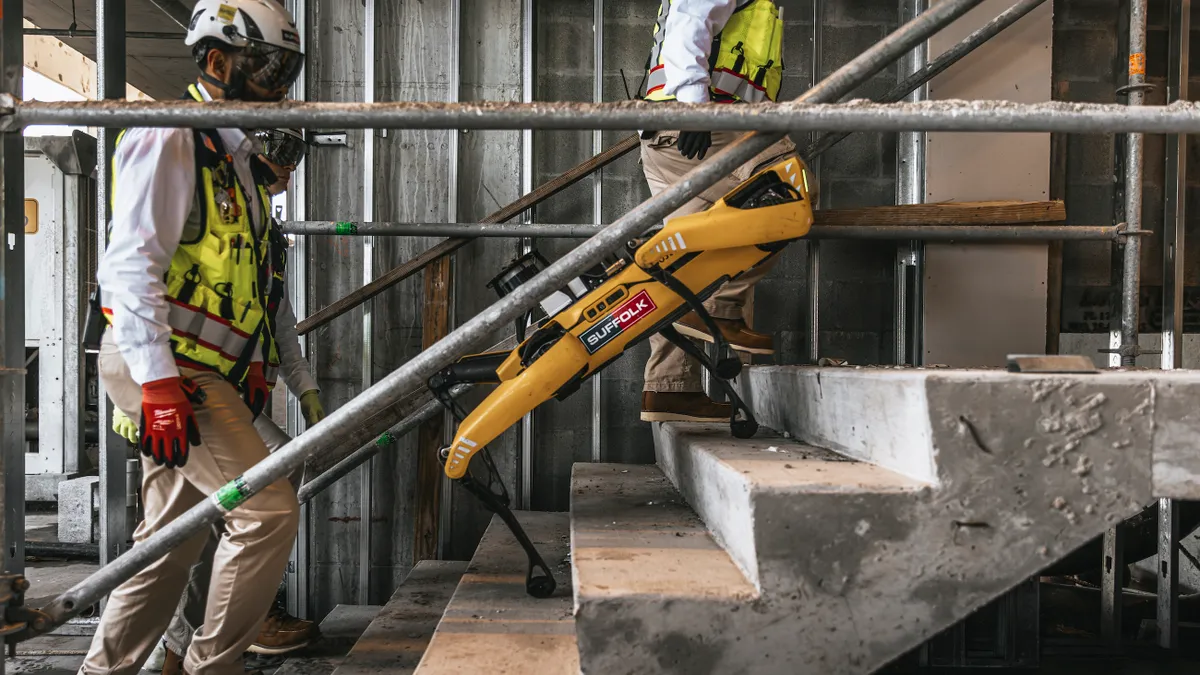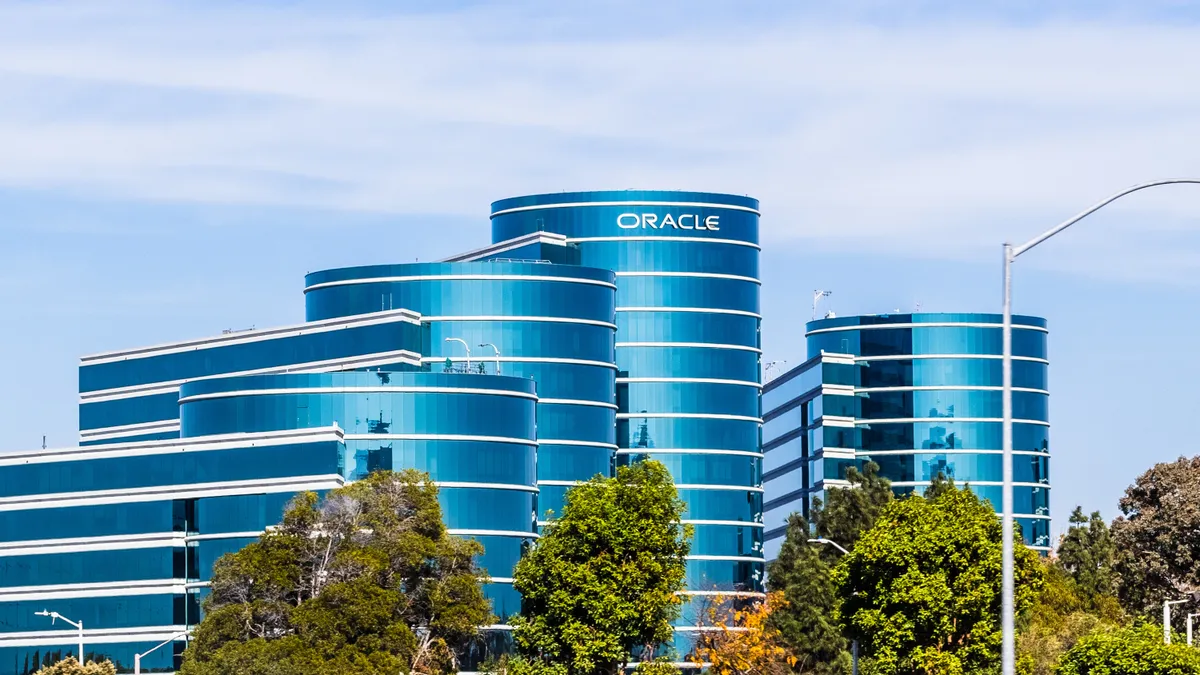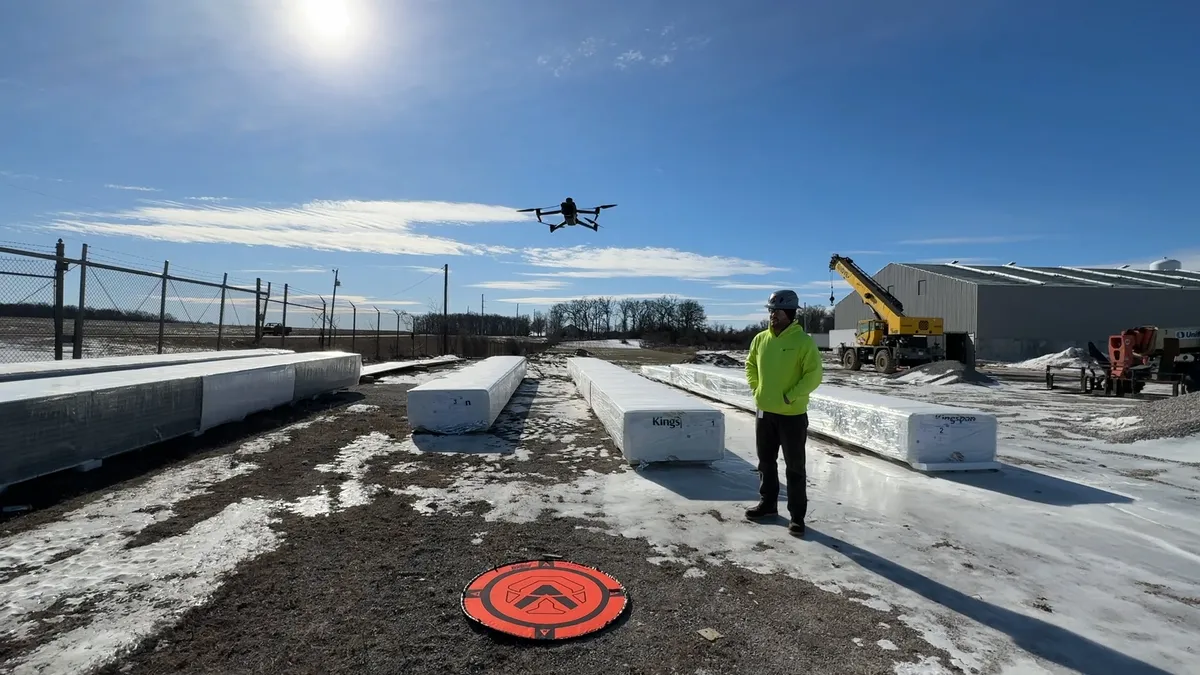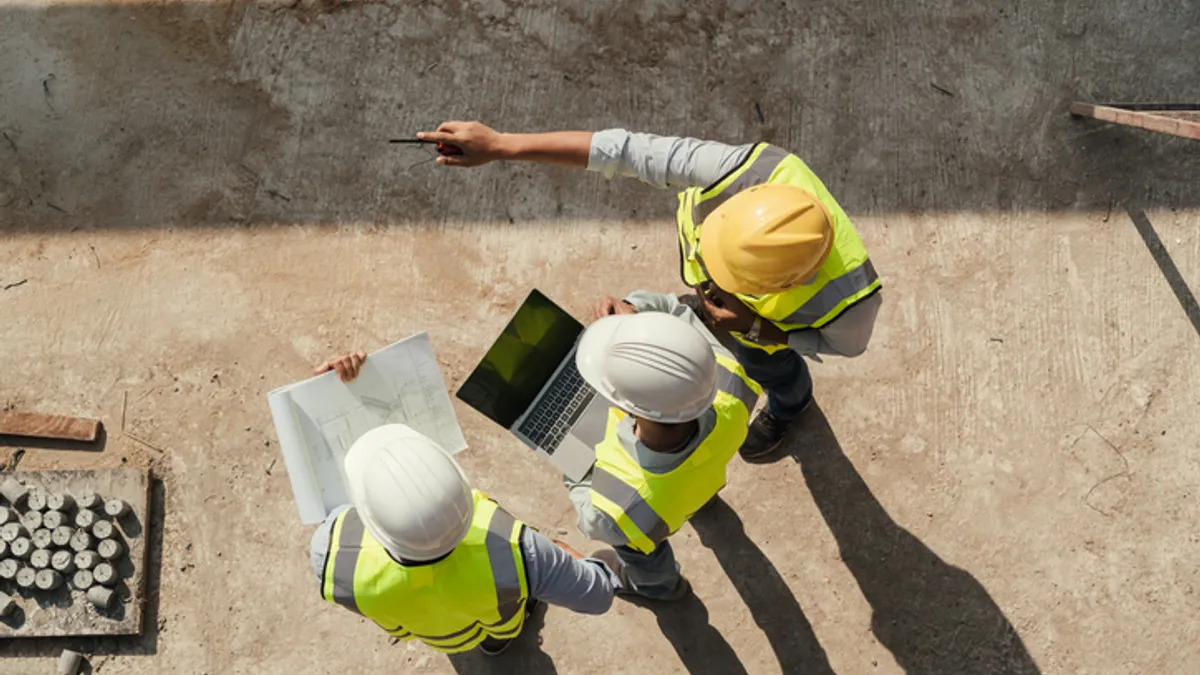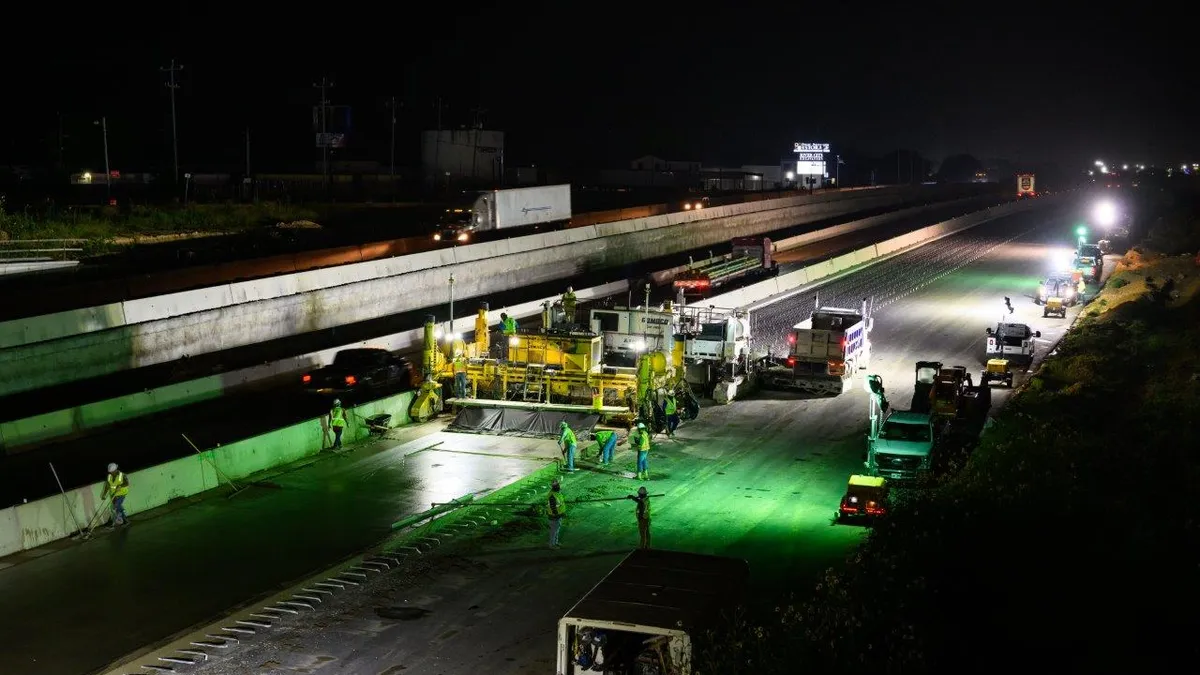Jason Dunnam is vice president of construction at Irving, Texas-based EMJ Construction. Opinions are the author’s own.
As a proud member of Generation X, whenever the subject of AI is brought up, I think of Arnold Schwarzenegger in The Terminator, which isn’t exactly a ringing endorsement for the benefits of technology.

So I get it when construction workers worry about how they'll make a living in the future, and whether machines will take their jobs.
Regardless of where you stand on this topic, one thing is for certain: The commercial construction industry is quickly moving to the next stage of AI development. It may not be as catastrophic as some people believe.
According to a 2022 report by Market Research Future, the market size for AI in construction will reach $2.5 billion by 2030. AI is already giving contractors a lot of benefits, such as better project planning and scheduling, lower project costs and enhanced safety measures.
James Barrett, chief innovation officer for Turner Construction, recently told Construction Dive that “artificial intelligence will transform our industry in the next 10 years more than any other technology in the past 100 years. It’s going to be huge because it has such broad application in so many cases. It’s not a question of if. It’s a question of when.”
Turner already uses AI-powered drones to conduct quality control inspections, which results in time and financial savings compared to the traditional, manual process.
At EMJ Construction, we’ve taken a similar tact utilizing OpenSpace, a platform that uses a 360-degree camera and AI technology to create an experience like Google Street View for the project. This gives our project teams the ability to track progress through the images taken by the camera and allows EMJ to maintain a comprehensive photo diary of a given project from beginning to end.
More sharing needed
While this technology is already having a positive impact on how contractors operate, there is still one challenge for AI developers to overcome: data sharing.
Collecting and managing data in a dynamic and complex industry like construction is much more challenging than it is in controlled sectors like manufacturing and automotive.
Almost all of the construction’s data is siloed, owned by many different players who are often hesitant to share it. Contractors do not want to lose the competitive edge they’ve gained by collecting historical data over the years. Because of this, there isn't a lot of easy-to-find information in this industry that could help AI models and predictions be more accurate.
Where data and AI meet
This is where project management platforms, such as Procore and PlanGrid, come into play.
These platforms currently provide real-time access to project information, enabling construction teams to collaborate and communicate in a more efficient and effective manner. By automating tasks like managing documents, planning projects and keeping track of budgets, these platforms save contractors time and money while making project data more accurate.
But in the race to collect data, the ROI these platforms provide pales in comparison to the windfalls that will come with the further incorporation of AI into their systems.
Procore, for example, is already teaming up with Amazon Web Services to use AWS IoT TwinMaker to incorporate valuable construction information into operations after buildings are complete to streamline maintenance and enable lifecycle analysis of portfolio assets.
“Knowing how a design or procurement decision will impact a project is one of the most complicated challenges in construction,” said Tooey Courtemanche, Procore’s CEO, in a LinkedIn post. “What AWS and Procore are able to offer together is a deeper understanding of how those decisions can help streamline operations, reduce costs, and optimize performance by applying 3D models and digital twin technology.”
So why is this a big deal? The purpose of Procore's platform is to connect all the people who have a stake in a project's lifecycle. AWS IoT TwinMaker will make it possible to combine Procore's data from design and construction, which includes over 1 million projects and more than $1 trillion in construction volume, with data from running the business.
Partnerships like this have the potential to drastically accelerate the construction industry’s ability to manage and analyze data, which will lead to improved models and better, predictable results to be leveraged as AI increasingly makes inroads in the industry.
A future worth building?
At the same time, Kyle Reese, the Terminator’s nemesis, was right: “AI will not stop."
It would be foolish not to acknowledge this technology could have unintended consequences. Automation in particular should be closely monitored in construction, where physically moving massive objects can have dire consequences if done without care or supervision.
But the potential benefits of AI in the construction industry are significant, and the industry is quickly moving toward the next stage of development, as evidenced by the Procore-AWS deal.
While challenges persist, I am hopeful that in the future, AI remains a helpful and supportive companion for humans and the things they build. I certainly hope it doesn't decide to rise up and enslave humanity like Skynet did in The Terminator.
I have a good feeling about this. After all, it was just a movie.
Right?


